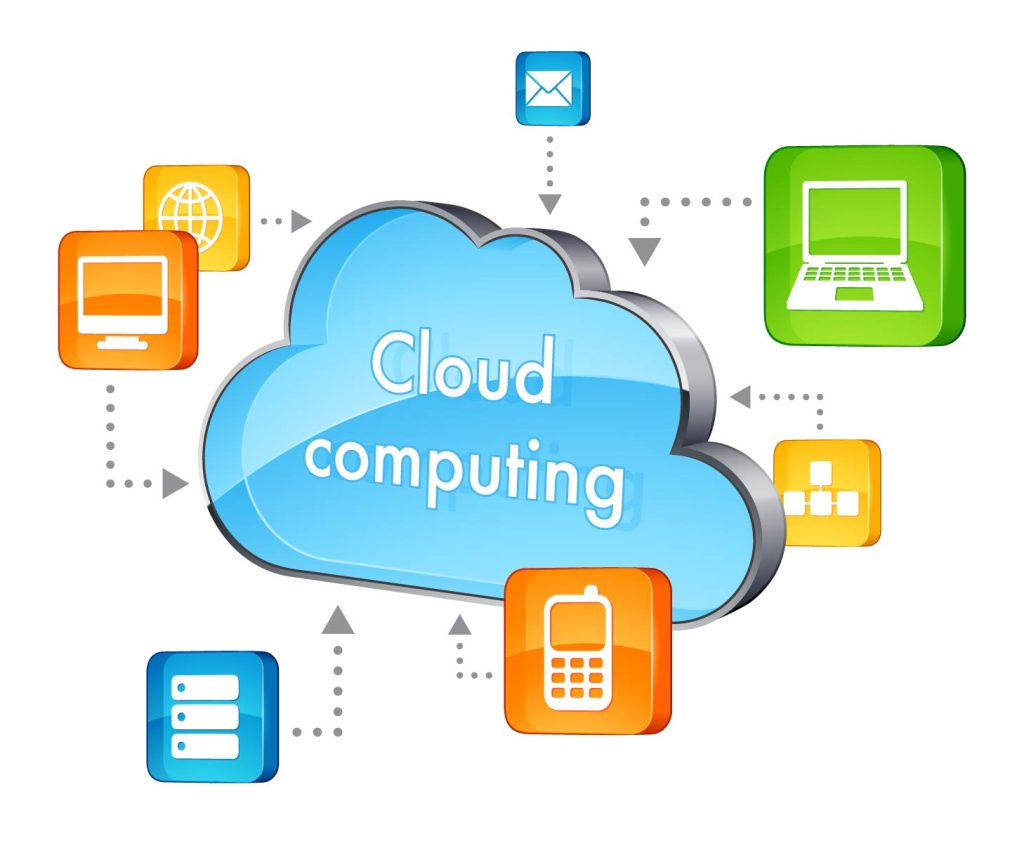-
.
(888) 338-5261
Contact Us Now
TOLL FREE (US/CANADA)(888) 338-5261
INTERNATIONAL(719) 387-9909
Sales[email protected]
Live Chat - . Client login

In today’s increasingly connected world, the security of your web hosting environment has never been more critical. Security breaches can be catastrophic for small and medium-sized businesses (SMBs). The good news is that enhancing security in web hosting is achievable with the right approach and tools.
SMBs are often targeted by malicious actors due to their lack of resources and security measures. While there’s no one-size-fits-all solution when it comes to web hosting security, there are steps that every SMB should take to ensure their data is secure. This article will walk you through the most critical measures for enhancing your web hosting security.
Data Breaches:
It is essential to recognize that gaining access to confidential information without proper authorization can have grave consequences. This could result in identity theft, financial losses, and legal complications. It is vital to safeguard sensitive data and protect against unauthorized access.
Phishing:
It is essential to be aware that cybercriminals may try to gain unauthorized access to your website by sending emails or links that contain harmful or malicious content. These attacks can take many forms, including phishing scams or malware infections, and can have severe consequences for your website’s security and reputation. Staying vigilant and proactively protecting your website from these threats is crucial.
Malware Attacks:
Malicious software can be used to compromise your data and disrupt operations. Security vulnerabilities arise when servers are poorly configured, or software is outdated, presenting an easy opportunity for malicious actors to exploit these weaknesses and gain unauthorized access to your data. It’s crucial to regularly update your software and review your server configurations to ensure they meet the latest security standards.
DDoS Attacks:
Distributed denial of service (DDoS) attacks involve sending multiple requests to a web server, causing it to crash or slow down. DDoS attacks can severely impact the availability of your website, making it inaccessible to users. The main aim of these attackers is to overwhelm your server with excessive traffic, leading to a service interruption.
This could mean a potential loss in revenue, a decrease in customer trust, and damage to your brand reputation. To mitigate the risk of DDoS attacks, businesses should consider utilizing services from reliable hosting providers that offer DDoS protection. Regular monitoring and traffic analysis can also help detect unusual activity and stop an attack in its early stages. Remember, preparedness and quick response are the keys to dealing with DDoS attacks.
System Disruption:
Malicious actors can shut down websites, delete files, and cause irreparable damage. System disruption is one of the most destructive cyber threats that SMBs face. Such disturbances can result from various activities, including internal errors, hacking, or catastrophic hardware failures. Typically, these disruptions can cause your website to become inaccessible, lead to the loss of critical data, or compromise the overall system’s integrity.
In many cases, system disruptions result from targeted attacks by cybercriminals aiming to damage your business’s operations and reputation. For example, attackers may exploit vulnerabilities in your web hosting environment to alter website content, disrupt service availability, or even delete essential files.
The cost of these disruptions extends beyond the immediate loss of service. It can also include lost sales, customer dissatisfaction, and the expense of restoring the system to its original state. Moreover, a company’s reputation damage can be significant and far-reaching if sensitive customer data is compromised.
Security Vulnerabilities:
Poorly configured servers or outdated software can be exploited by malicious actors to gain access to your data. These vulnerabilities can occur for many reasons, such as neglecting regular system updates, utilizing weak or reused passwords, or failing to implement necessary firewalls and virus protection. SMBs must continually assess security standards and fortify their systems to close loopholes.
Regular audits, timely system updates, and staff training on cybersecurity best practices are integral to maintaining a solid defense. Also, considering the services of a managed hosting provider can ensure you have a team of experts continually monitoring for potential vulnerabilities and threats. These experts are well-equipped to handle any weak points in your security infrastructure, making them a valuable asset to your business security strategy.

Improved Data Protection:
Implementing security measures will protect your data from being stolen or corrupted. Boosted data security not only shields your information from unauthorized access but also ensures it’s promptly recovered in case of any loss, thanks to robust backup protocols. Additionally, it instills confidence in your clients, as they can trust that their sensitive data is safe and secure when interacting with your digital platforms.
Increased Efficiency:
A secure hosting environment will reduce downtime and disruptions, improving performance and efficiency. Increased efficiency means your team can focus more on the core tasks that drive growth instead of constantly managing security concerns. Additionally, the improved uptime associated with a secure web-hosting environment ensures that your visitors can access your site whenever they need it, which can directly contribute to customer satisfaction and business revenue.
Enhanced Reputation:
Customers and partners will have more confidence in your business if they know their data is safe. A robust security strategy safeguards your operation and enhances your business’s reputation. In the digital age, a company with a solid commitment to security is seen as reliable and trustworthy, which can significantly improve client relationships and attract new customers. Moreover, it can give you a competitive edge in the marketplace, as customers are likelier to choose services from a company that prioritizes security. Maintaining high-security standards can boost your brand image, increasing customer loyalty, business growth, and profitability.
Secure Data Storage:
Keeping sensitive information secure ensures the privacy of your customers and employees. Secure data storage guarantees regulatory compliance and shields your business from costly data breaches. It provides the foundation for a steadfast trust relationship with your clients, as they are assured their personal and financial information is under the best protection possible.
Enhanced Performance:
Improved security measures can help reduce downtime, improve website speed, and enhance user experience. Optimized performance parameters directly influence your website’s SEO rankings, driving more traffic and potentially leading to increased conversions. Furthermore, a better-performing and responsive website significantly improves user engagement and ensures your visitors have a positive experience, which can contribute to repeat visits and customer retention.
Increased Visibility:
Implementing robust security measures can boost customer trust and add credibility to your business. The increased visibility can also improve search engine rankings, as search engines like Google prioritize secure websites. This means that by implementing robust security measures, you protect your business, enhance your web presence, and reach a wider audience.

Keeping your hosting software up-to-date is a fundamental step. Security patches are regularly released to fix known vulnerabilities. On a dedicated server, you have complete control over the system’s software, including the operating system, server software, and any installed applications.
This control grants you the responsibility of regularly updating all these software components. Regular updates are crucial for feature enhancements and, more importantly, security improvements.
Developers continually work hard to patch vulnerabilities, and these patches are typically included in the latest software updates. Failing to install these updates leaves your system exposed to these known vulnerabilities, potentially inviting malicious attacks.
Regular software updates also include updates to your dedicated server’s operating system. Like any software, operating systems have flaws that cybercriminals can exploit. Hence, it’s essential to install all security updates from the OS vendor promptly.
If your server runs on an open-source OS like Linux, the community constantly works on improving security measures, and these improvements are included in the updates. Therefore, updating your server’s operating system is critical to maintaining a secure web hosting environment.
Enforcing strong passwords and changing them regularly can prevent unauthorized access. Strong password policies are an essential aspect of web hosting security. They are the first defense against unauthorized access, ensuring that only authorized personnel can manage your website’s backend.
A firm password policy encourages using complex passwords that include a mix of uppercase and lowercase letters, numbers, and special characters. These passwords are inherently complex for hackers to crack.
Also, it’s best to change these passwords regularly and avoid reusing old passwords. Using password management tools can help keep track of these changes and ensure the strength of passwords. This simple but effective practice can significantly enhance your website’s security, protecting your data and business.
These act as barriers to malicious traffic, detecting and stopping attacks before they reach your server. Firewalls and Intrusion Detection Systems (IDS) form the bedrock of security measures for Virtual Private Servers (VPS) and Dedicated Servers. They function as digital watchtowers, meticulously monitoring network traffic for malicious or suspicious activity.
Firewalls control the flow of incoming and outgoing network traffic based on an organization’s previously determined security policies. At its most basic, a firewall prevents unauthorized access to or from a private network.
In contrast, Intrusion Detection Systems inspect all inbound and outbound network activity and identify suspicious patterns that may indicate a network or system attack from someone attempting to break into or compromise the system. When combined, these two systems provide a robust, layered defense mechanism, significantly enhancing the security of both VPS and dedicated servers.
SSL certificates encrypt data between the user’s browser and the server, safeguarding information like credit card numbers and passwords.
Secure Sockets Layer (SSL) Certificates play a pivotal role in web security, acting as digital passports that authenticate a website and enable an encrypted connection. These certificates ensure that all data transmitted between a web server and a browser remains private and integral.
With an SSL certificate, any transmitted information becomes unreadable to everyone except for the server the data is being sent, protecting it from hackers and identity thieves.
In web hosting, SSL certificates are not just an optional addition but a necessary component. Internet users have become more concerned about security and privacy and are likelier to interact with and purchase from sites with SSL certificates. It not only encrypts the sensitive information of your site visitors but also increases the legitimacy of your site by proving to visitors that your site is secure and trustworthy.
Furthermore, search engines favor sites with SSL certificates, meaning that having an SSL certificate can improve your site’s SEO. In essence, SSL certificates are a fundamental part of the security infrastructure of any website and a crucial factor for improving user trust and website visibility.
2FA adds an extra layer of security, requiring two forms of identification before granting access. Two-Factor Authentication (2FA) acts as a double check, verifying the user’s identity through two separate elements: something they know, like a password, and something they have, such as a unique code sent to their phone.
This dual verification makes it highly challenging for potential intruders to gain improper access. Thus, implementing 2FA into your web hosting security strategies can significantly decrease the likelihood of security breaches, safeguarding your online presence and, by extension, your business.
Security audits and continuous monitoring are indispensable components of a comprehensive web security strategy. Regular security audits involve systematically evaluating and scrutinizing our web hosting setup against established criteria to identify potential vulnerabilities and loopholes.
These audits delve beyond surface-level security, examining the technical framework and operational procedures. In tandem, continuous monitoring provides real-time insights into server activity, enabling quick detection of unusual patterns that may signal a security breach.
This proactive approach allows SMBs to address security threats promptly, minimizing potential damages and safeguarding their digital assets. Thus, integrating regular security audits and monitoring into your security strategy fortifies your defense mechanisms, enhancing overall web hosting security.

Choose a provider like JaguarPC, offering industry-standard security certifications and compliance. When choosing a web hosting provider, security considerations should be paramount. It is prudent to opt for a hosting provider like JaguarPC, which offers industry-standard security certifications and compliance.
These certifications, such as ISO 27001, SOC 2, and PCI DSS, are evidence of the provider’s commitment to implementing and maintaining rigorous security protocols. They signify that the hosting provider has been rigorously audited and operates under strict security standards to protect sensitive data.
These certifications guarantee that the hosting provider has robust security measures, including firewalls, encryption, intrusion detection systems, and stringent access controls. Businesses can gain peace of mind by choosing a hosting provider with these security certifications, knowing their online presence is secure.
A web hosting provider that offers 24/7 support is crucial for effective and prompt responses to any security issues that may arise. This continuous support means that, regardless of the time of day or night, dedicated professionals are on standby to address any concerns, troubleshoot problems, and mitigate potential damages.
Such round-the-clock vigilance ensures that your business remains operational, minimizing the risk of costly downtime. An effective support team can also guide you through any necessary updates or changes to your web hosting security protocols, ensuring your defenses remain robust and up-to-date. Always remember that a reliable web hosting provider is there for you whenever you need them.
Different businesses have different needs; look for providers offering tailored security solutions. Every business is unique, with specific security requirements that differ based on factors such as the nature of operations, the type of data handled, and the sensitivity of the information. A one-size-fits-all security approach may not adequately protect your business.
That’s why opting for a web hosting provider with customizable security options is essential. These providers understand that each business has unique needs and risks. So they’ll be able to tailor a security plan that matches your business requirements.
Whether it’s advanced DDoS protection for a high-traffic e-commerce site or secure file transfer protocols for a company dealing with sensitive customer data, a customizable approach ensures that all aspects of your business are well-protected. This level of customization allows your business to implement the appropriate defenses and safeguards, offering you a more thorough and fit-for-purpose security solution.
Security is everyone’s responsibility. Regular training can make your team aware of the latest threats and how to counter them. The importance of team education in maintaining server security cannot be overstated. In this ever-evolving digital landscape, new threats emerge daily, and the techniques employed by cybercriminals become increasingly sophisticated.
It’s vital to ensure your team knows about and understands these threats. Regular training sessions on identifying potential security risks, phishing attempts, suspicious activity, and other hazards can equip your team with the necessary skills to prevent breaches and ensure the security of your server.
Training should not be a one-time event but an ongoing process. Regular updates about new risks and security protocols are crucial for keeping your team armed with the latest knowledge. Workshops, seminars, and online courses can be beneficial, as can frequent reminders about the importance of maintaining a solid security posture.
Creating an open communication culture is also essential, encouraging team members to report suspicious activity without fear of penalty. The goal is to foster a security-conscious culture within your organization, where every team member understands their role in safeguarding your business against cyber threats.
A clear and comprehensive security policy can guide behavior and set expectations within your organization. An effective security policy is the foundation of your business’s security efforts, detailing the standards, guidelines, and procedures to ensure your digital assets’ safety.
In the context of web hosting, this policy might include directives on using strong, unique passwords, proper management of user permissions, regular updates and patching of server software, and backup strategies to safeguard data. It should also detail the protocols in case of a security breach, ensuring swift and appropriate action to mitigate damages.
However, designing a security policy is a task that can evolve as your business grows and new threats emerge. Regular reviews and updates are essential to keeping the policy current and effective.
Providing your team with precise and updated guidelines can prevent inadvertent security lapses, such as clicking on a malicious link or failing to update software. Hence, a well-implemented security policy is integral to enhanced web hosting security and maintaining the integrity of your online presence.
Enhancing security in web hosting is not just a technical challenge; it’s a business imperative. From basic measures like solid passwords to advanced strategies like regular security audits, SMBs have various tools.
Choosing a responsible hosting provider like JaguarPC, which prioritizes security, can make the process more manageable. With a security-conscious culture, SMBs can confidently navigate the complex landscape of digital threats.